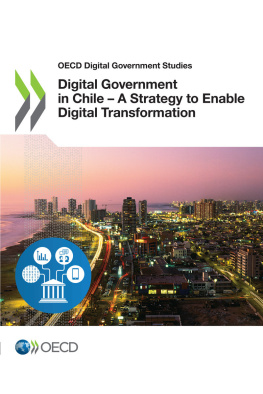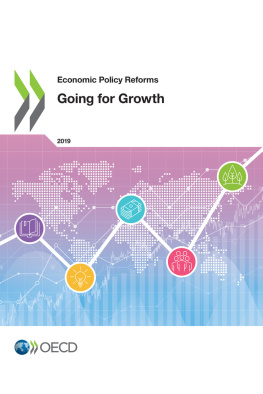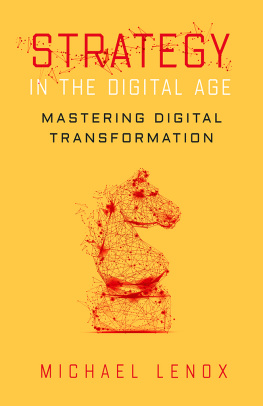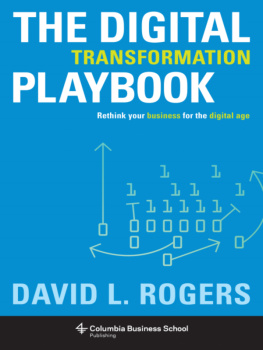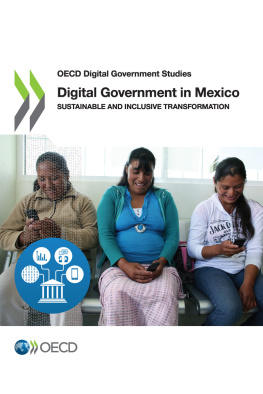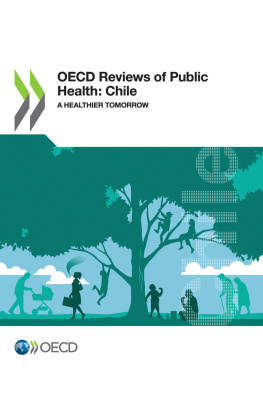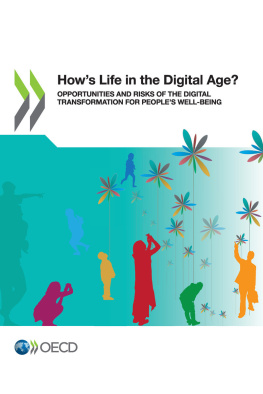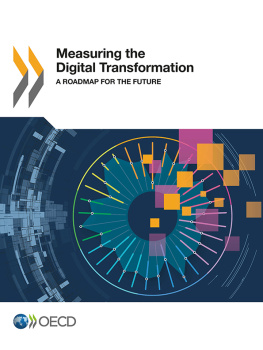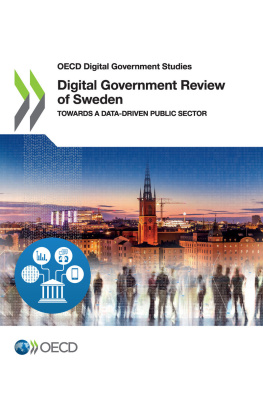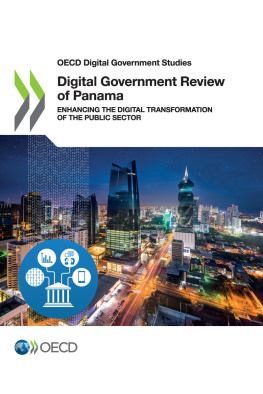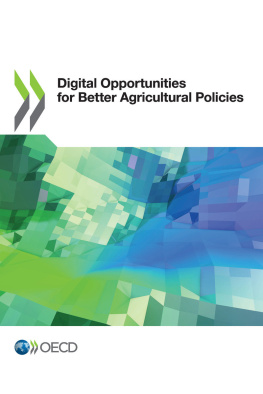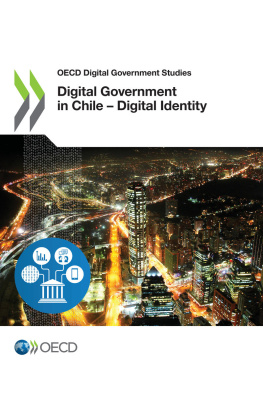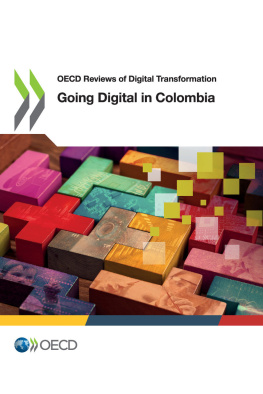OECD - Digital Government in Chile – A Strategy to Enable Digital Transformation
Here you can read online OECD - Digital Government in Chile – A Strategy to Enable Digital Transformation full text of the book (entire story) in english for free. Download pdf and epub, get meaning, cover and reviews about this ebook. year: 2019, publisher: OECD Publishing, genre: Politics. Description of the work, (preface) as well as reviews are available. Best literature library LitArk.com created for fans of good reading and offers a wide selection of genres:
Romance novel
Science fiction
Adventure
Detective
Science
History
Home and family
Prose
Art
Politics
Computer
Non-fiction
Religion
Business
Children
Humor
Choose a favorite category and find really read worthwhile books. Enjoy immersion in the world of imagination, feel the emotions of the characters or learn something new for yourself, make an fascinating discovery.
Digital Government in Chile – A Strategy to Enable Digital Transformation: summary, description and annotation
We offer to read an annotation, description, summary or preface (depends on what the author of the book "Digital Government in Chile – A Strategy to Enable Digital Transformation" wrote himself). If you haven't found the necessary information about the book — write in the comments, we will try to find it.
OECD: author's other books
Who wrote Digital Government in Chile – A Strategy to Enable Digital Transformation? Find out the surname, the name of the author of the book and a list of all author's works by series.
Digital Government in Chile – A Strategy to Enable Digital Transformation — read online for free the complete book (whole text) full work
Below is the text of the book, divided by pages. System saving the place of the last page read, allows you to conveniently read the book "Digital Government in Chile – A Strategy to Enable Digital Transformation" online for free, without having to search again every time where you left off. Put a bookmark, and you can go to the page where you finished reading at any time.
Font size:
Interval:
Bookmark:
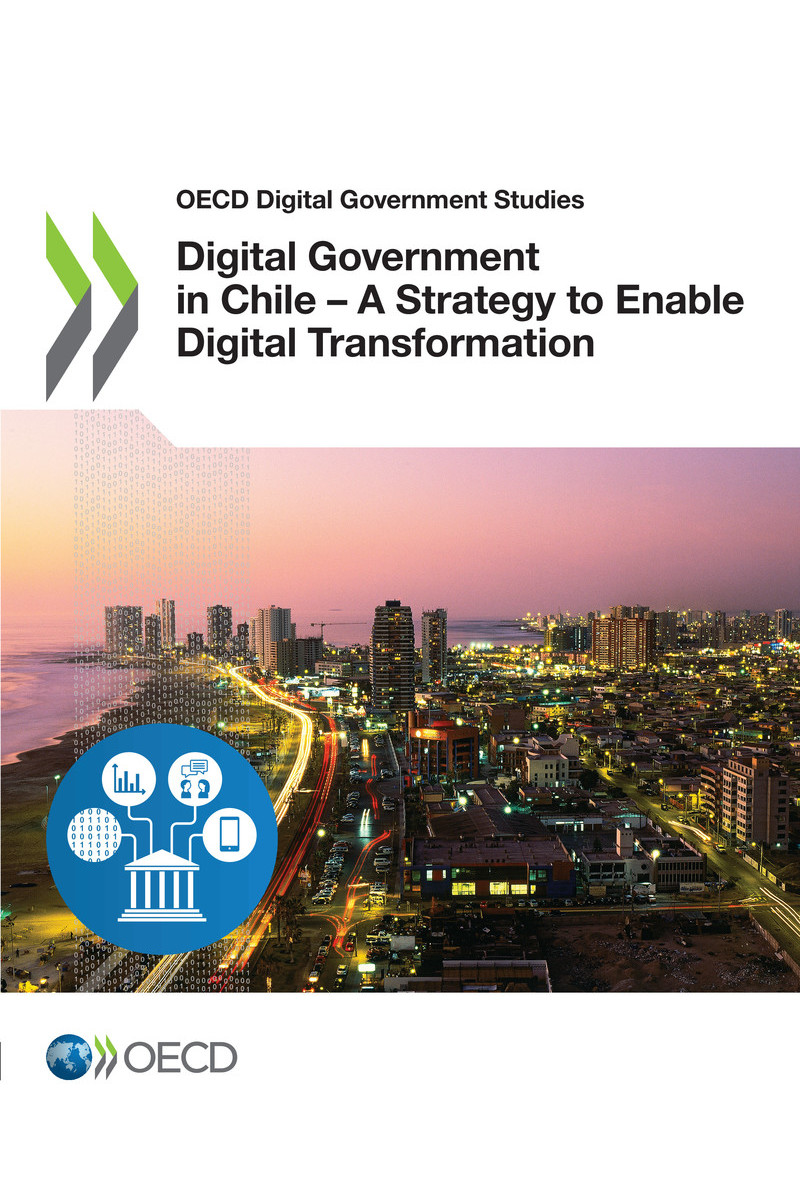
OECD (2019), Digital Government in Chile A Strategy to Enable Digital Transformation , OECD Digital Government Studies, OECD Publishing, Paris, https://doi.org/10.1787/f77157e4-en .
Government leadership, especially in overseeing the strategic use of data and technology, is critical if countries are to reap the benefits of the digital revolution and improve social well-being.
The study, Digital Government in Chile Making the Digital Transformation Sustainable and Long-Lasting, assesses the evolution, achievements and challenges in the design and implementation of digital government strategies in Chile since 2004. It aims to support the Government of Chile in framing and implementing future strategic decisions and developing digital capacity throughout the public sector. In particular, it looks at how Chile can build a whole-of-government approach to embed digital approaches into everyday government operations.
The study builds on the 2016 OECD publication, Digital Government in Chile: Strengthening the Institutional and Governance Framework, which delivered the policy recommendations that guided subsequent reforms to the institutional framework for digital government in Chile. These reforms were critical in underpinning the current ambitions to promote greater digital maturity across the Chilean public sector.
Chile is a widely recognised leader in Latin America when it comes to digital government. This achievement reflects the commitment to establishing a sound governance framework, developing an ambitious Digital Transformation Strategy and upgrading the countrys legal framework.
Nevertheless, to ensure the sustainability of this progress, Chile should work towards shared ownership of, and responsibility for, the digital government strategy throughout the public administration. To do this the study highlights the need for engagement and coordination within and between government institutions, the importance of building technical leadership and digital skills in recruitment and training as well as proposing new approaches to funding and the evaluation of delivery. Above all, for Chiles digital government approaches to increase citizen well-being through more responsive, protective and trustworthy government, the study calls for developing service design and delivery approaches that prioritise user research, recognise the value of data and foster digital inclusion.
This study was requested by the Ministry General Secretariat of the Presidency ( Ministerio Secretara General de la Presidencia, MINSEGPRES) and the Ministry of Finance ( Ministerio de Hacienda ). It is based on the OECD Recommendation of the Council on Digital Government Strategies and draws on the insights gathered through the comparative assessment of the design and implementation of digital government strategies in several OECD member and non-member countries.
This study also contributes to the global policy debate on the digitalisation challenges and opportunities across different policy areas, including digital government. This work is part of the Going Digital Project, which is the OECD flagship initiative designed to address this important policy issue.
The study Digital Government in Chile Making the Digital Transformation Sustainable and Long-lasting was prepared by the OECD Directorate for Public Governance (GOV), under the leadership of its Director, Marcos Bonturi.
The study was produced by the OECD Reform of the Public Sector Division (GOV/RPS). It benefitted from the strategic orientation and revisions of Barbara-Chiara Ubaldi, Acting Head of Division and lead of the Digital Government and Open Data Team.
The study was drafted by Rodrigo Mejia Ricart, digital government policy consultant under the supervision of, and with contributions from, Benjamin Welby, Digital Government Policy Analyst, Reform of the Public Sector Division, OECD. The authors are grateful to Liv Gaunt for editorial support.
The study benefitted from the expertise of the OECD Working Party of Senior Digital Government Officials (E-Leaders). This project would not have been possible without the support of the Chilean Ministry General Secretariat of the Presidency, the Ministry of Finance and its State Modernisation Programme.
Finally, the Secretariat would like to acknowledge the invaluable contribution of Andrs Bustamante, Head of the Digital Government Division of the Chilean Ministry General Secretariat of the Presidency, and Kareen Schramm, Policy and Digital Government Research Co-ordinator of the same institution. The OECD would also like to warmly thank Randall Ledermann and Felipe Gonzalez Zapata, Project Coordinators of the State Modernisation Programme, Ministry of Finance, Chile.
The age of digital transformation has come and, as other technological revolutions before, it is profoundly changing models of production, communication, and socialisation. This revolution is however unprecedented in terms of breadth, depth and speed. The digital revolution is deploying and embedding technology into our lives at a faster and faster rate. As it does so, it affects the structures and operations of both private and public organisations.
Governments have little choice but to provide the necessary leadership in using data and technology to maximise the potential for improving social well-being. If they fail to do so, they risk significant policy failures or delivering outdated services that do not respond to citizen needs. To meet citizens current expectations and to maintain or reinforce public trust, governments must change how they operate.
Font size:
Interval:
Bookmark:
Similar books «Digital Government in Chile – A Strategy to Enable Digital Transformation»
Look at similar books to Digital Government in Chile – A Strategy to Enable Digital Transformation. We have selected literature similar in name and meaning in the hope of providing readers with more options to find new, interesting, not yet read works.
Discussion, reviews of the book Digital Government in Chile – A Strategy to Enable Digital Transformation and just readers' own opinions. Leave your comments, write what you think about the work, its meaning or the main characters. Specify what exactly you liked and what you didn't like, and why you think so.

